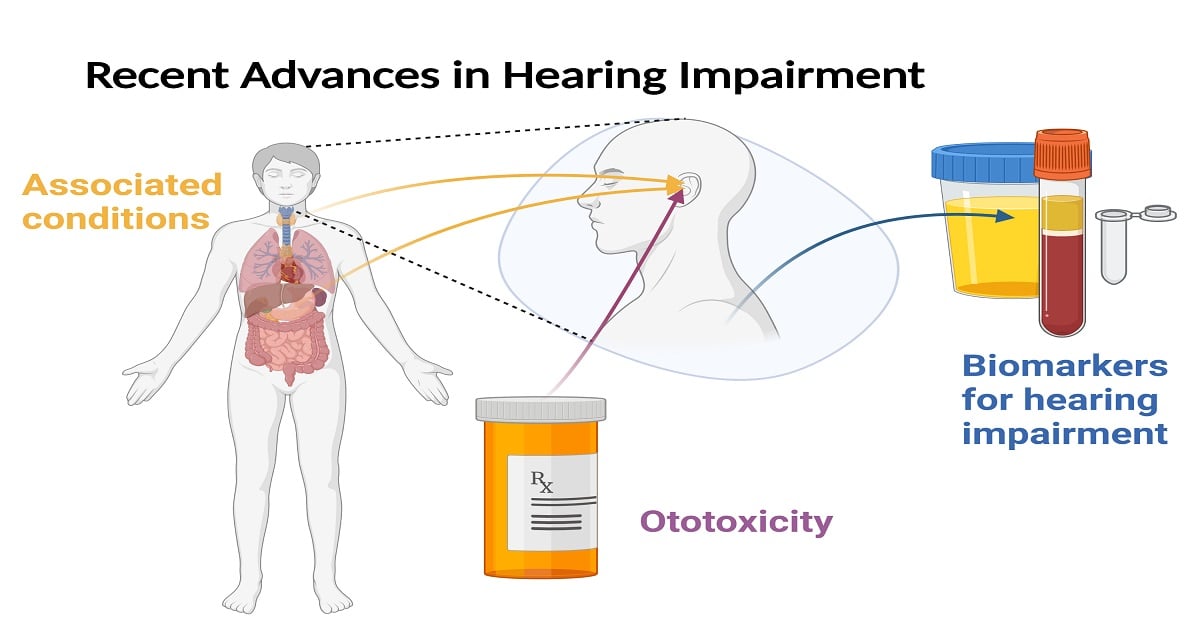Recent Advances in Hearing Impairment
A special issue of Brain Sciences (ISSN 2076-3425). This special issue belongs to the section "Neuro-otology and Neuro-ophthalmology".
Deadline for manuscript submissions: 1 August 2024 | Viewed by 1358

Special Issue Editor
Interests: hearing research; inner ear immunology; ototoxicity
Special Issues, Collections and Topics in MDPI journals
Special Issue Information
Dear Colleagues,
Hearing impairment is a common condition that has received increased attention recently. Scientific studies showing a link between untreated hearing loss and the development of dementia have been particularly instrumental in raising the profile of hearing loss. The classic causes of hearing loss or deafness are genetic predisposition, ototoxic substances and drugs, noise, and aging. Some diseases, such as diabetes, multiple sclerosis, autoimmune diseases, or certain cancers, are also affected by the development of hearing loss. Because this field of research is evolving exponentially, a thematic collection of the latest discoveries could help us keep up to date with these developments.
This Special Issue aims to collate recent clinical and basic research that provides new information on the ototoxic effects of drugs (including biologics), as well as the lesser-known disease entities associated with hearing impairment, such as (but not limited to) temporomandibular joint disorders, kidney diseases, Hashimoto's disease, or mitochondrial diseases. New biomarkers for hearing loss are also covered.
Original papers (clinical and basic research), case reports, and review articles are welcome. Opinion papers will also be considered in special cases.
Prof. Dr. Agnieszka Szczepek
Guest Editor
Manuscript Submission Information
Manuscripts should be submitted online at www.mdpi.com by registering and logging in to this website. Once you are registered, click here to go to the submission form. Manuscripts can be submitted until the deadline. All submissions that pass pre-check are peer-reviewed. Accepted papers will be published continuously in the journal (as soon as accepted) and will be listed together on the special issue website. Research articles, review articles as well as short communications are invited. For planned papers, a title and short abstract (about 100 words) can be sent to the Editorial Office for announcement on this website.
Submitted manuscripts should not have been published previously, nor be under consideration for publication elsewhere (except conference proceedings papers). All manuscripts are thoroughly refereed through a single-blind peer-review process. A guide for authors and other relevant information for submission of manuscripts is available on the Instructions for Authors page. Brain Sciences is an international peer-reviewed open access monthly journal published by MDPI.
Please visit the Instructions for Authors page before submitting a manuscript. The Article Processing Charge (APC) for publication in this open access journal is 2200 CHF (Swiss Francs). Submitted papers should be well formatted and use good English. Authors may use MDPI's English editing service prior to publication or during author revisions.
Keywords
- ototoxicity
- autoimmune disease
- cochlear synaptopathy
- hair cell loss
- spiral ganglion damage
- translational research
- audiology
- animal models
- biomarkers for hearing loss






